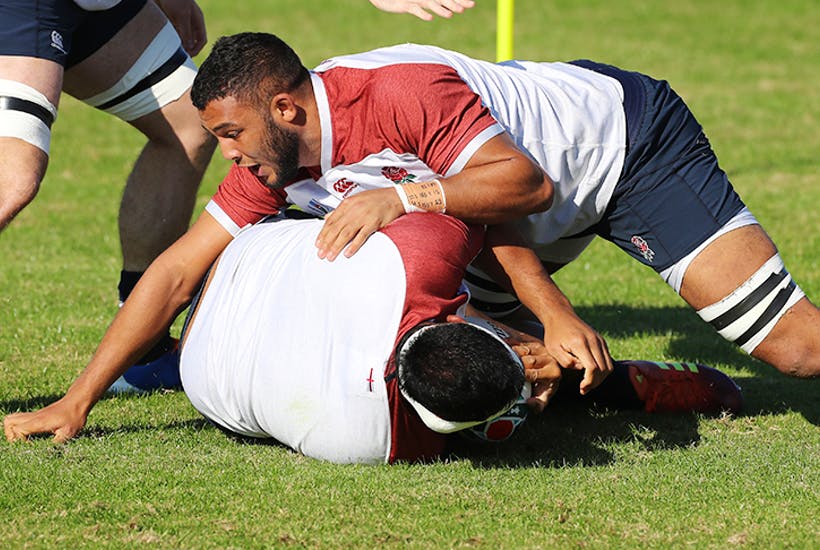New Zealanders can teach the world a lot about sportsmanship. Steve Hansen after last Saturday’s All Blacks defeat by England in the World Cup semi-final showed the uncomplaining loser can be just as impressive as the triumphant winner. As he put it: ‘Winning’s easy…[but] when you lose… you have to show humility, do it gracefully and be honest about it. Sometimes you have to bite down on your gumshield and suck it up.’
The Springboks have put rugby back several decades. Big, beastly, and brutal, they made the first half of their semi-final with Wales almost unwatchable. Afterwards the Wales hierarchy talked about losing the ‘arm-wrestle’: but why are Wales trying to arm-wrestle? Schoolboys in the valleys dream of being Barry John, not arm-wrestling champions.
You can’t win anything without a strong back row and a second row titan. In 2003 England won the trophy with Richard Hill, Neil Back and Lawrence Dallaglio, and Martin Johnson titanic in the second row. Now it’s Tom Curry, Sam Underhill and Billy Vunipola playing rugby from a different planet, fast, brave and ferocious, while Maro Itoje is leaving the Kiwis for dead, so to speak. This meant the England back line could operate with freedom and enterprise as the New Zealanders were forced to defend.
A witty coach is a winning coach. Eddie Jones is funny, mischievous and intense, but never boring, from the V-for-victory (as well as something else) formation to cheery put-downs of irritating questioners and even Warren Gatland ( ‘Send my best to Warren to make sure he enjoys the third-place play-off’). Jones says you have to embrace tough decisions, but be prepared to treat every player as if they were your son. The level of the respect between the top coaches (all southern hemisphere) is fascinating. The big under-performing teams were Scotland, Italy and France, coached by a Scot, an Irishman and a Frenchman.
Never underestimate the iron-hard value of rugby league. England’s play-making duo of George Ford and Owen Farrell were raised in the crucible of the toughest sport in the world. Ford was born in Oldham and his father Mike has a rugby league CV that reads like something out of This Sporting Life. He played for Wigan, Leigh, Oldham, Castleford, Warrington and Wakefield Trinity, not to mention to agreeably monikered South Queensland Crushers. Farrell was born in Lancashire, and his father Andy is a rugby league legend after a stellar career for Wigan and Great Britain. Owen’s cheeky grin while the Kiwis gave it their all during the haka last weekend — ‘Is that the best you’ve got?’ — is the sign of a man not easily intimidated. He’ll need all that and more for the Springboks.
England are playing Total Rugby. The razzle-dazzle brilliance against the All Blacks was arguably the best performance by any England team in any sport anywhere. It is interesting to hear Jonny Wilkinson talk of England in the way people used to talk of the Dutch football team. ‘Whatever number’s on your back,’ said Wilkinson, ‘you’re able to do everything.’ Maybe England will bring in an era of Total Rugby like the Dutch brought in Total Football.
Rugby still might not be for every-one. Despite the excitement generated by this World Cup, rugby has stalled in terms of global expansion. Is the 15-a-side game just too complicated to become a truly global sport? In a fascinating new book, my old colleague Mike Aylwin argues that if rugby is to broaden its appeal it will be through Sevens, now an Olympic sport. Rugby, says Aylwin, has suddenly become of strategic interest to some mighty nations, including China — not least because ‘no grounding in rugby’s esoteric mechanics is required to appreciate Sevens’. In the meantime, bring on the Boks.







Comments